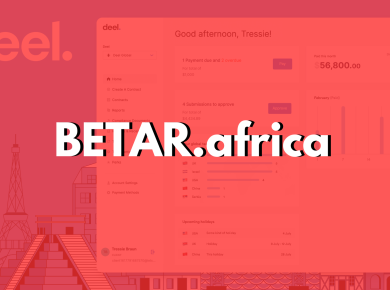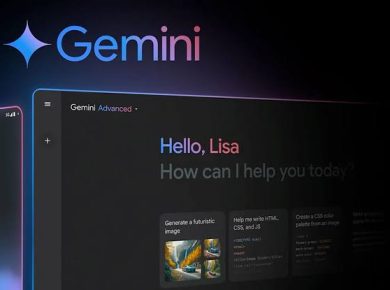In a world where software development races to keep pace with innovation, a new contender has emerged to redefine how developers work: Augment Code. Launched on October 23, 2024, by the team at augmentcode.com, this AI-powered coding assistant promises to be more than just another tool—it’s a game-changer for tech professionals tackling the complexities of modern software engineering. With a staggering $270 million in funding and a debut that’s already turning heads, Augment Code arrives with bold claims: it outperforms GitHub Copilot by 70% and boasts the highest score ever on the SWE-bench Verified leaderboard. For developers, this isn’t just hype—it’s a practical leap forward, designed to tackle real-world challenges with precision and flair. From managing sprawling codebases to delivering top-tier code quality and integrating seamlessly into existing workflows, Augment Code is set to empower coders like never before. Here’s why this launch matters—and how it could reshape the future of development, including in Africa’s burgeoning tech ecosystems.
Mastering Complexity: Real-Time Context and Code Checkpoints
Software development today often means wrestling with massive, intricate codebases—think databases, networking stacks, or storage systems that have evolved over years with contributions from hundreds of developers. Augment Code steps into this chaos with a standout advantage: its ability to manage complexity through real-time context analysis and innovative features like Code Checkpoints. Unlike traditional AI tools that stumble over large repositories, Augment’s Context Engine analyzes entire codebases instantly, ensuring every suggestion or edit is grounded in the full scope of the project. This isn’t just autocomplete on steroids—it’s a deep understanding of dependencies, APIs, and coding patterns unique to your team.
Take Code Checkpoints, for example. As Augment’s AI agents implement changes, they automatically snapshot your workspace at key stages. Need to review a modification or rollback a misstep? One click reverts you to a previous state, no manual untangling required. This feature alone is a lifeline for developers working on production-grade systems where “simple changes” are rarely simple. Scott Dietzen, CEO of Augment Code, emphasized this focus in an interview with VentureBeat: “We targeted the software engineering discipline of maintaining big, complex systems… codebases that have evolved over many years with hundreds of developers working on them collaboratively.” For a developer staring down a monorepo with 100,000+ files, Augment’s ability to orient you in minutes— even in unfamiliar territory—feels less like a tool and more like a trusted pair programmer.
Real-world proof came from Poonam Soni, an early tester, who showcased Augment building an Amazon clone in minutes. This feat highlights how its 200K-token context capacity and real-time analysis can handle sprawling, interdependent systems with ease. For African developers working on ambitious projects—say, fintech platforms or e-commerce solutions—this could mean faster iteration and fewer headaches, even with limited resources.
Unmatched Code Quality: Leading the Pack on CCEval and SWE-bench
Quality matters as much as speed in software development, and Augment Code delivers here in spades. Its performance metrics are jaw-dropping: a 67% exact match percentage on the CCEval benchmark, trouncing GitHub Copilot’s 50% (with open files) and 30% (without). CCEval tests cross-file code completion—real-world scenarios where context across multiple files is critical—and Augment’s edge stems from its complete codebase indexing and specialized retrieval models. This isn’t just about filling in blanks; it’s about generating code that fits seamlessly into existing structures, reducing bugs and rework.
Then there’s its crown jewel: the top spot on the SWE-bench Verified leaderboard, with a 65.4% success rate. By blending Anthropic’s Claude 3.7 Sonnet with OpenAI’s O1 reasoning model, Augment solves real GitHub issues from popular libraries like Django and Flask—tasks that mirror the daily grind of professional developers. This isn’t “vibe coding” for toy projects; it’s functional, production-ready output that outshines competitors. Dietzen noted, “Many of our developers want to stay in the code… they care about what the ultimate code looks like and have strong opinions about that.” Augment respects that artistry, offering suggestions that align with your team’s style while minimizing hallucinations—those pesky AI errors that can derail a sprint.
For tech pros, this translates to trust. Whether you’re refactoring a legacy system or building a new feature, Augment’s output doesn’t just work—it elevates your codebase. In African tech hubs like Nairobi or Lagos, where developers often juggle multiple roles, this precision could slash debugging time and boost delivery, letting talent shine on innovation rather than cleanup.
Seamless Workflow Integration: No More Context-Switching Chaos
Developers live in a constellation of tools—VSCode, JetBrains, Vim, GitHub, Slack, Jira, Notion—and switching between them can fracture focus. Augment Code tackles this with seamless integrations that keep you in the flow. Available as a plugin for VSCode and JetBrains (with Vim support to boot), it embeds inline completions and a chat interface directly into your IDE. Need to troubleshoot an error? Ask Augment via Slack without leaving your editor. Want to turn a Jira ticket into a pull request? Native tools for GitHub, Jira, and Linear make it a breeze, no configuration needed—just authenticate and go.
This isn’t client-side tinkering; Augment handles integrations in the cloud, ensuring consistency across teams. “Easily shareable and consistent across a larger team,” Dietzen explained, contrasting it with competitors like Cursor, which forks VSCode and limits compatibility. Augment preserves full Microsoft ecosystem support, letting you leverage standard plug-ins alongside its AI muscle. Early adopters like Webflow and Kong report it feels like working with their most seasoned engineer—insights flow naturally, tasks get assigned via Slackbot, and productivity soars.
Imagine a developer in Accra syncing with a remote team: Augment’s Slack integration lets them hash out a bug, get AI-proposed fixes, and push changes—all without juggling tabs. Soni’s Amazon clone demo underscores this fluidity, showing how Augment chains suggestions into complete workflows. For African startups, where lean teams need every efficiency edge, this could mean faster pivots and smoother collaboration, even across borders.
Redefining Productivity and Innovation Globally—and in Africa
Augment Code isn’t just another AI tool—it’s a paradigm shift. Its ability to tame complex codebases, deliver unmatched quality, and slot effortlessly into workflows positions it as a force multiplier for developers worldwide. With $270 million in backing and a valuation nearing $1 billion, it’s clear the industry sees its potential. For individual coders, it’s a productivity booster; for teams, it’s a collaboration catalyst; for enterprises, it’s a security-conscious partner (SOC-2 Type 1 compliant, no training on customer code).
In Africa, where tech ecosystems are exploding—from Nigeria’s fintech boom to Kenya’s Silicon Savannah—Augment could be transformative. Developers here often face resource constraints and tight deadlines, making tools that amplify output without steep learning curves invaluable. Building an Amazon clone in minutes isn’t just a flex; it’s a glimpse of how Augment could accelerate local innovation, letting devs focus on solving uniquely African challenges—think mobile-first solutions or offline-capable apps—rather than wrestling with tools.
As software development evolves, Augment Code stands out as a partner that gets it: coding isn’t just logic, it’s craft. By empowering developers to work smarter, not harder, it’s poised to redefine what’s possible—globally and right here on the continent. For the tech pros reading betar.africa, this is your cue: dive in, try the 14-day free trial, and see how Augment could turbocharge your next project. The future of coding just knocked—will you answer?










